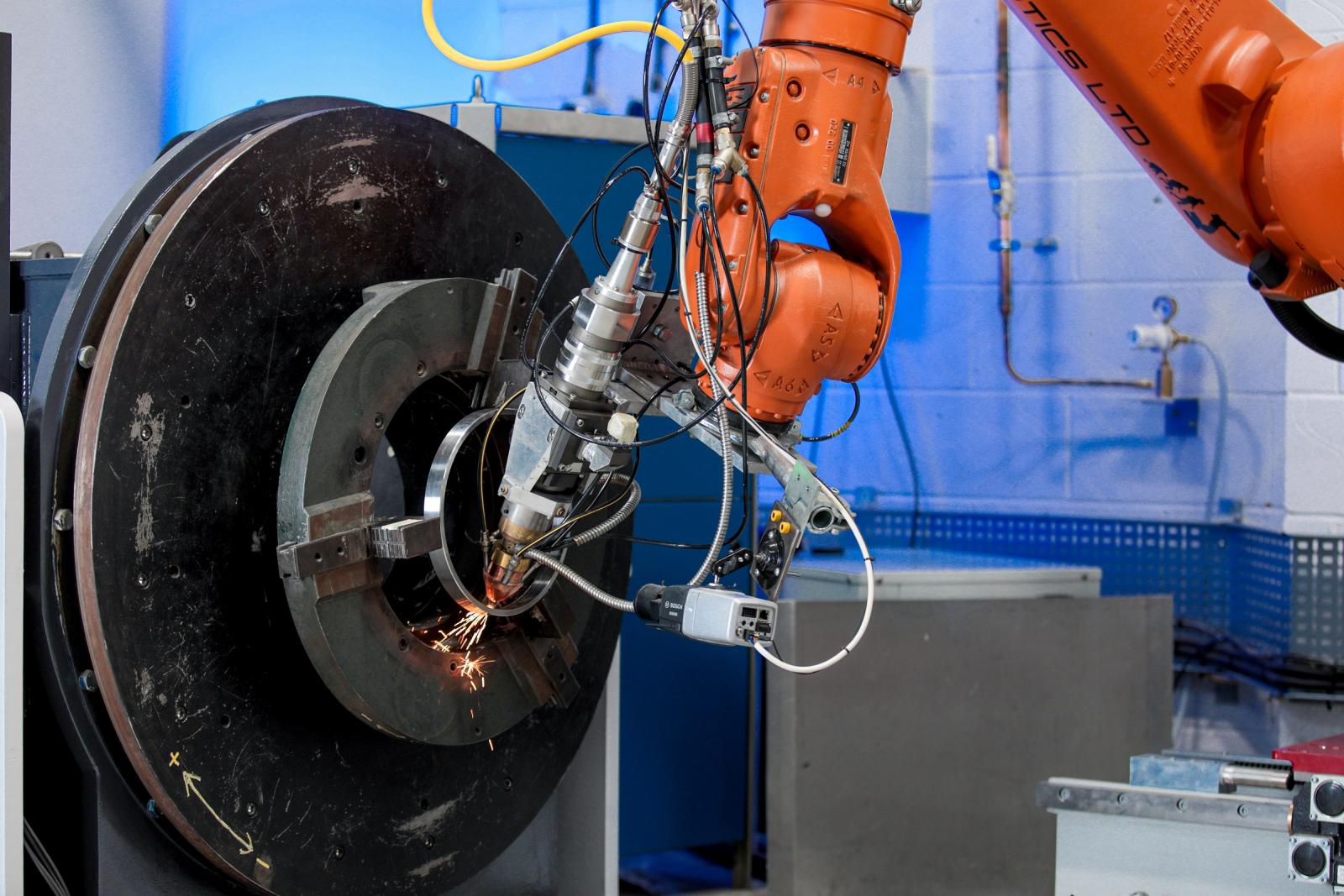
ASCO can now offer a wider range of machining, coating and repair services following the installation of robot-based laser metal deposition and hard-facing system from CNC Robotics.
Based in Skelmersdale, Lancashire, and with a second site in Dubai, ASCO offers a comprehensive service incorporating CNC precision machining, fabrication, surface coating, diamond grinding and superfinishing repair technologies. As well as having an extensive machine shop equipped with CNC lathes and machining centres, the site includes specialist coating equipment, including unique systems specifically designed for the company’s processes. All manufacturing at the company is supported by an in house metallurgical laboratory for testing coatings to international standards and CNC co-ordinate measuring machines for dimensional inspection, ensuring that precision components can be certified to be within microns.
Laser-metal deposition and hard-facing cladding allows coatings such as tungsten carbide, Stellite and Inconel to be deposited with a significantly lower and more localised heat-affected zone (HAZ), even with materials that are difficult to weld. This means that the process has minimal impact on the mechanical properties of the substrate material and reduced potential for distortion and damage to the chemistry and structure of the base core material. In addition, the small melt pool that is formed enables the processing of very complex geometries in a single set-up, when depositing protective surfaces, undertaking repairs or creating near-net shapes.
The ability to work with very complex shapes is supported by the flexibility of the robot cell. The robot offers six-axis movement, while specially designed work holding adds a further three axes, giving the potential for nine-axis operation. In addition, a novel head can be fitted to allow the internal cladding of bores up to 2 metres in length and down to 55 mm bore size.
The main challenge for the system resulted from the variety and complexity of the shapes being processed at ASCO Engineering since the laser has to be as near as possible to 90° to the surface of the part. This was overcome with a KUKA robot that includes very few restrictions on its range of movements.
While the new system has been used predominately for adding coatings to new parts, it has also proved valuable in component repair. For these projects, repair material is typically laid down in layers of up to 1mm per pass and then ground back to give the final surface. Dependant on clients’ requirements ASCO is, in reality, able to clad to any thickness.
The main benefit of the new system is the consistency of the results. Many of the coating materials used at ASCO Engineering are very expensive blends that are needed to give the necessary corrosion resistance and wear resistance. Many of the parts made by the company are used in demanding applications in the oil and gas and power generation, mining and aircraft industries where any failures can lead to costly losses in production.
Andy Deegan, Chairman at ASCO believes that the system has made their company more versatile than any equivalent supplier in Europe, creating the ultimate one-stop-shop.
He says: “The robot system is at its best when we are working with batches of parts. We can process the first part, confirm that it is dimensionally accurate and carry out full laboratory checks on the surface integrity. Once we know we have set the correct parameters for the first part, we can rely on the repeatability of the robot to ensure that the rest of the batch will be equally good.
“The repeatability also helps us to ensure on-time delivery. After the first part has been completed, the time the robot will take to repeat any task is very predictable, which makes scheduling easy. If we can guarantee high quality and offer on-time delivery, clients won’t have any need to go elsewhere.”